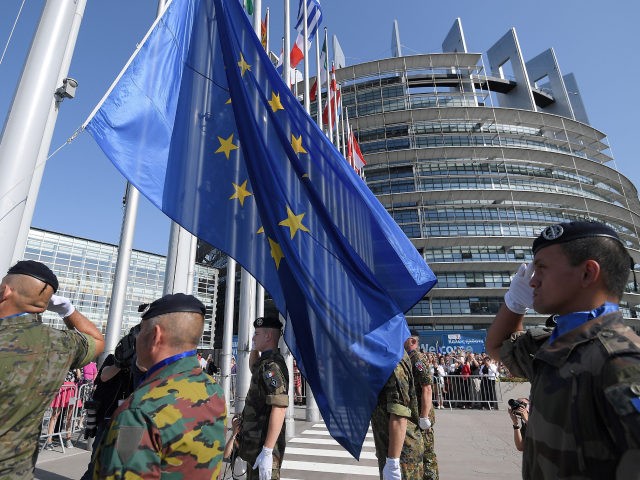NATO chief Jens Stoltenberg has warned that the EU developing a rapid reaction force could weaken the defence union’s ability to work together and could “divide Europe”.
Following the collapse of Afghanistan to the Taliban, senior figures in the European Union are proposing the development of a rapid reaction force of up to 20,000 troops able to be deployed quickly anywhere around the world, enabling the political bloc to act independently of the United States. The bloc has had “battlegroups” of 1,500 soldiers since 2007 but has never sent them into combat.
Last week, EU Foreign Affair and Security Policy Commissioner Josep Barrell said of further development of an effective EU Army: “It’s clear that the need for more European defence has never been as much as evident as today after the events in Afghanistan.” Brussels officials plan to present a draft proposal on the rapid response force in November.
Asked his thoughts of a European Union force fighting under the EU flag, former Norwegian Prime Minister Jens Stoltenberg, who heads the North Atlantic Treaty Organization (NATO), told The Telegraph on Sunday that while he welcomed more European efforts on defence — with only eight EU member-states contributing the minimum two per cent GDP spend on defence — “that can never replace and we need to make sure that Europe and North America band together”.
“Any attempt to weaken the bond between North America and Europe will not only weaken Nato, it will divide Europe,” Mr Stoltenberg said.
“Any attempt to establish parallel structures, duplicate the command structure, that will weaken our joint capability to work together because with scarce resources we need to prevent duplication and overlapping efforts. The specific proposals have not been discussed in Nato, we have not seen any details,” he added.
Former President of the United States of America Donald Trump had regularly criticised European nations for their failure to maintain their spending commitments, with the United States being relied upon to pay much of the financial burden.
Recognising how much non-EU members pay into NATO, Stoltenberg continued: “This is partly about money – 80 per cent of our defence expenditure comes from non-EU allies… It’s about geography – Norway, Iceland in the North, Turkey in the South, the US, Canada, UK, in the West, are essential for the defence of Europe.”
Reiterating the potential strain a multi-nation defence unit could put on European-American relations, the Norwegian added: “But it’s also about politics. Because any weakening of the transatlantic bond will also divide Europe.”
Stoltenberg is not the only person on continental Europe sceptical of a rapid response force, including the Baltic nations which are concerned the eventual next stage of developing an EU army would undermine NATO, with questions raised of whether soldiers would be willing to die while on duty under the EU flag.
One EU diplomat had told The Telegraph last week: “What European leader has expressed the willingness to welcome the coffin of a soldier who died on the instructions of Borrell?”
The diplomat also cast doubt on whether the EU would be up to the task, adding: “Does he seriously entertain the idea the EU would be able to step into the void the US has left? Even with the UK that would be impossible.”
The plans are believed to have support from Germany, with the country’s defence minister, Annegret Kramp-Karrenbauer, saying the fallout from the Taliban takeover of Afghanistan proved that the bloc should “get more autonomous as Europeans and can act more independently” — however insisting it should not conflict with NATO or U.S. efforts.
France has also shown support in 2018 for a “real European army” EU army, “to protect ourselves with respect to China, Russia and even the United States of America” — comments then-President Trump branded “very insulting”.
In November 2017, the EU took its first major step towards an EU army, signing the Permanent Structured Cooperation process (PESCO), a pact pledging the majority of EU member states to the bloc’s Common Defence Fund. Two months before, the then-President of the European Commission Jean-Claude Juncker called for a “fully-fledged European Defence Union” by 2025, claiming that “NATO wants it”.

COMMENTS
Please let us know if you're having issues with commenting.